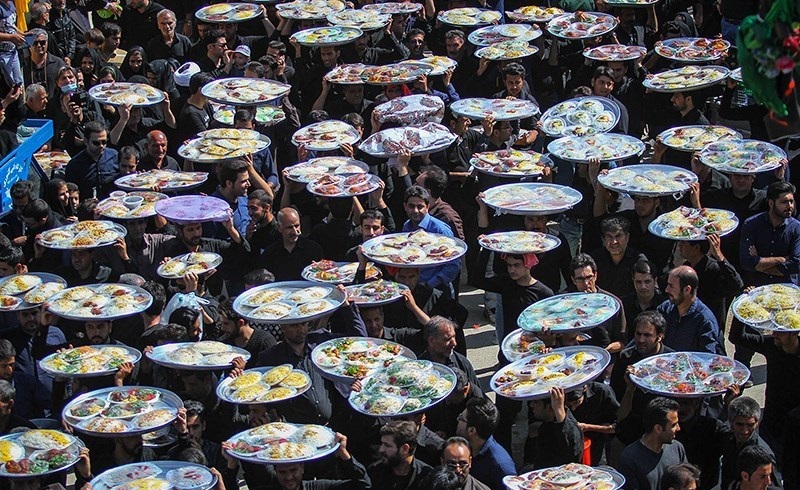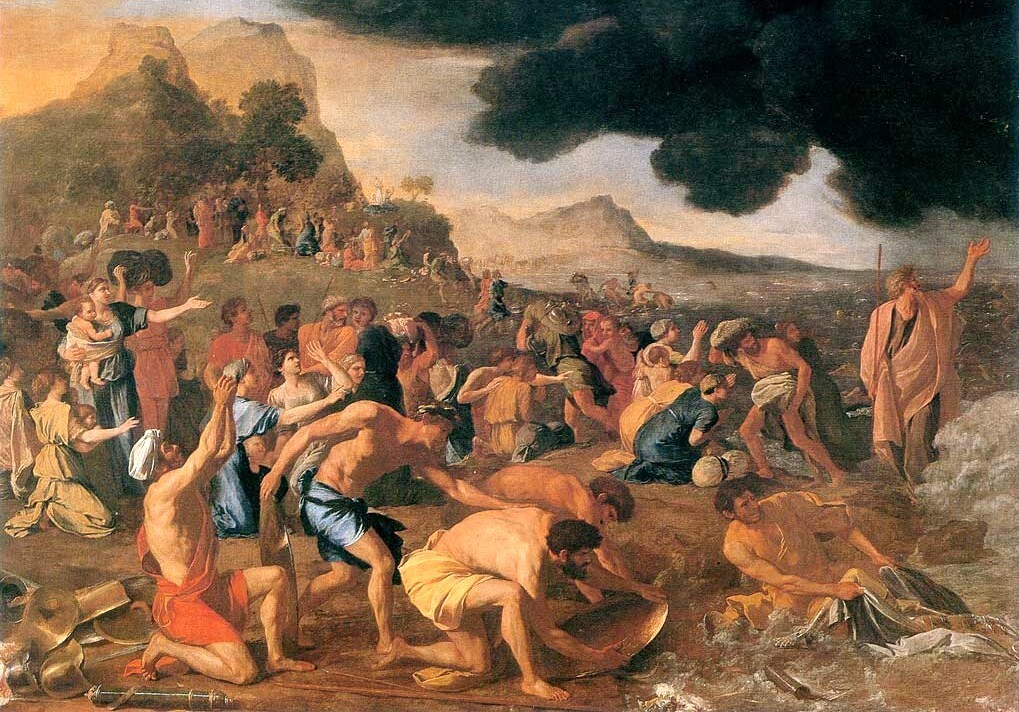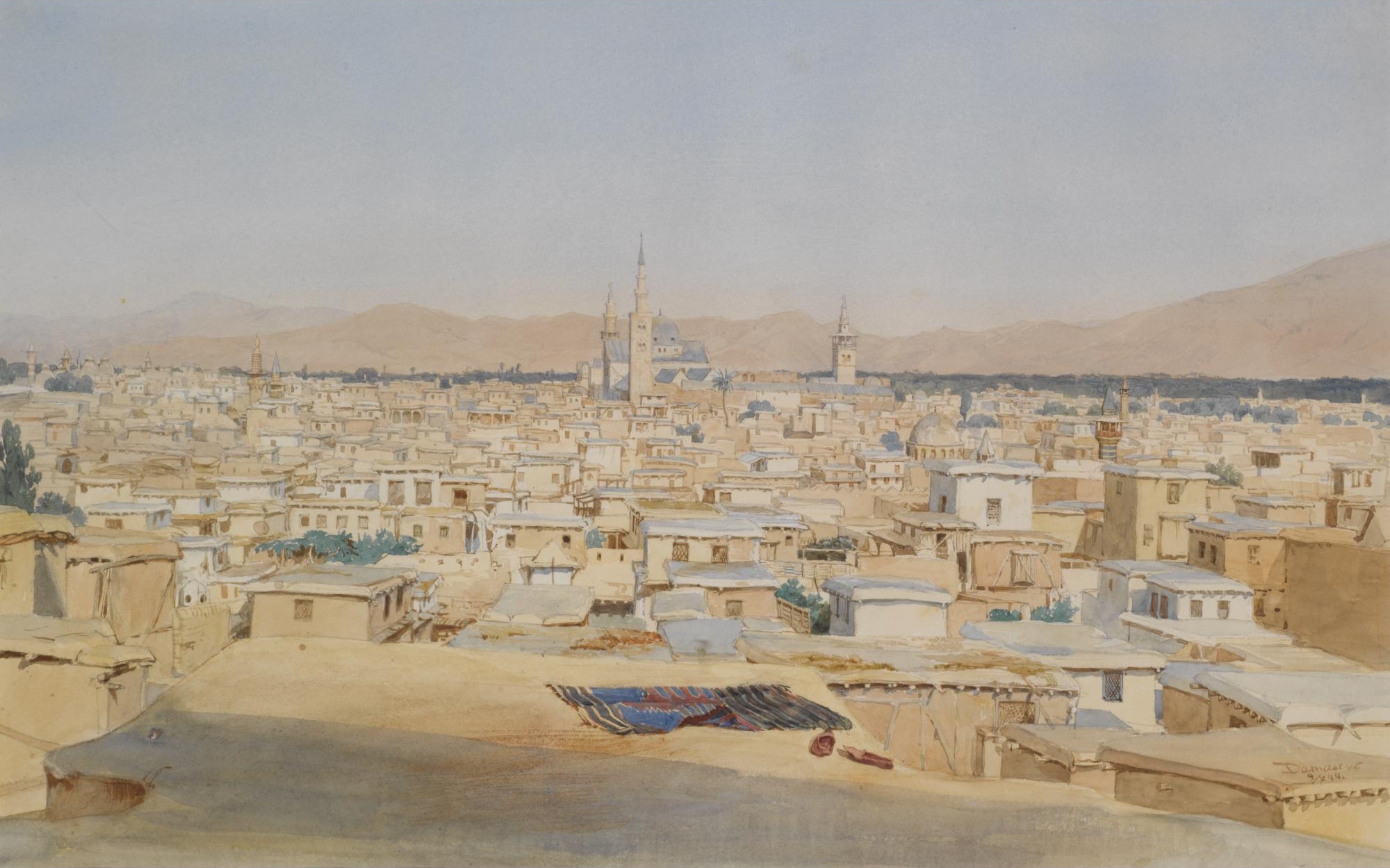|
Ashura
Ashura (, , ) is a day of commemoration in Islam. It occurs annually on the tenth of Muharram, the first month of the Islamic calendar. For Sunni Muslims, Ashura marks the parting of the Red Sea by Moses and the salvation of the Israelites. Also on this day, it is believed that Noah disembarked from the Ark, God forgave Adam, and Joseph was released from prison, among various other auspicious events having occurred on Ashura according to Sunni tradition. Ashura is celebrated in Sunni Islam through supererogatory fasting and other acceptable expressions of joy. In some Sunni communities, the annual Ashura festivities include carnivals, bonfires, and special dishes, even though some Sunni scholars have criticized such practices. By contrast, for Shia Muslims, Ashura is a day of mourning as they annually commemorate the death of Husayn ibn Ali, grandson of the Islamic prophet Muhammad and the third Shia imam. Husayn refused on moral grounds to pledge his allegiance to t ... [...More Info...] [...Related Items...] OR: [Wikipedia] [Google] [Baidu] |
Mourning Of Muharram
Mourning of Muharram (; ; ) is a set of religious rituals observed by Shia Islam, Shia Muslims during the month of Muharram, the first month of the Islamic calendar. These annual rituals commemorate the death of Husayn ibn Ali, grandson of the Prophets and messengers in Islam, Islamic prophet Muhammad and the third Imamate in Shia doctrine, Shia imam. Husayn and his small retinue were slaughtered in the Battle of Karbala on 10 Muharram 61 Islamic calendar, AH (680 Common Era, CE) against the army of the Umayyad Caliphate, Umayyad caliph Yazid I (). The battle followed Husayn's refusal to pledge his allegiance to Yazid, who is often portrayed by Muslims, Muslim historians as impious and immoral. In Shia Islam, Karbala symbolizes the eternal struggle between good and evil, the pinnacle of self-sacrifice, and the ultimate sabotage of Muhammad's prophetic mission. Historically, the event served to crystallize the Shia community into a distinct sect and remains an integral part of th ... [...More Info...] [...Related Items...] OR: [Wikipedia] [Google] [Baidu] |
Muharram
Al-Muharram () is the first month of the Islamic calendar. It is one of the four sacred months of the year when warfare is banned. It precedes the month of Safar. The tenth of Muharram is known as Ashura, an important day of commemoration in Islam. For Sunni Muslims, the day marks the parting of the Red Sea by Moses and the salvation of the Israelites, celebrated through supererogatory fasting and other acceptable expressions of joy. By contrast, Ashura is a day of mourning for Shia Muslims, who annually commemorate the death of Husayn ibn Ali, grandson of the Islamic prophet Muhammad and the third Shia imam. Husayn was killed, alongside most of his relatives and his small retinue, in the Battle of Karbala in 680 CE against the army of the Umayyad caliph Yazid ibn Mu'awiya (). The Shia rituals span the first ten days of Muharram, culminating on Ashura with mourning processions in Shia cities. Also in Muharram, the Aqsa mosque in Jerusalem was initially set as the direc ... [...More Info...] [...Related Items...] OR: [Wikipedia] [Google] [Baidu] |
Husayn Ibn Ali
Husayn ibn Ali (; 11 January 626 – 10 October 680 Common Era, CE) was a social, political and religious leader in early medieval Arabia. The grandson of the Islamic prophet Muhammad and an Alids, Alid (the son of Ali ibn Abu Talib ibn Abd al-Muttalib, Abi Talib and Muhammad's daughter Fatima), as well as a younger brother of Hasan ibn Ali, Husayn is regarded as the third Imam in Shia Islam after his brother, Hasan, and before his son, Ali al-Sajjad. Husayn is a prominent member of the Ahl al-Bayt and is also considered to be a member of the Ahl al-Kisa and a participant in the event of the mubahala, event of the ''mubahala''. Muhammad described him and his brother, Hasan, as the leaders of the youth of Paradise in Islam, paradise. During the caliphate of Ali, Husayn accompanied him in wars. After the assassination of Ali, he obeyed his brother in recognizing the Hasan–Muawiya treaty, Hasan–Mu'awiya I treaty, despite it being suggested to do otherwise. In the nine-year pe ... [...More Info...] [...Related Items...] OR: [Wikipedia] [Google] [Baidu] |
Battle Of Karbala
The Battle of Karbala () was fought on 10 October 680 (10 Muharram in the year 61 Hijri year, AH of the Islamic calendar) between the army of the second Umayyad Caliphate, Umayyad caliph Yazid I () and a small army led by Husayn ibn Ali, the grandson of the Islamic prophet Muhammad, at Karbala, Sawad (modern-day southern Iraq). Prior to his death, the Umayyad caliph Mu'awiya I () had nominated his son Yazid as his successor. Yazid's nomination was contested by the sons of a few prominent companions of Muhammad, including Husayn, son of the fourth caliph Ali, and Abd Allah ibn al-Zubayr, son of Zubayr ibn al-Awwam. Upon Mu'awiya's death in 680, Yazid demanded allegiance from Husayn and other dissidents. Husayn did not give allegiance and traveled to Mecca. The people of Kufa, an Iraqi garrison town and the center of Ali's caliphate, were averse to the Bilad al-Sham, Syria-based Umayyad caliphs and had a long-standing attachment to the house of Ali. They proposed Husayn overth ... [...More Info...] [...Related Items...] OR: [Wikipedia] [Google] [Baidu] |
Ta'zieh
Ta'zieh (; ; ) means comfort, condolence, or expression of grief. It comes from the roots ''aza'' (عزو and عزى) which mean mourning. It commonly refers to passion plays about the Battle of Karbala and its prior and subsequent events. Sir Lewis Pelly began the preface of his book about Ta'ziyeh maintaining that "If the success of a drama is to be measured by the effects which it produces upon the people for whom it is composed, or upon the audiences before whom it is represented, no play has ever surpassed the tragedy known in the Mussulman world as that of Hasan and Husain." Years later Peter Chelkowski, professor of Iranian and Islamic studies at New York University, chose the same words for the beginning of his book Ta`ziyeh, Ritual and Drama in Iran. Depending on the region, time, occasion, religion, etc. the word can signify different cultural meanings and practices: *In Iranian cultural reference it is categorized as Condolence Theater or Passion Play inspired ... [...More Info...] [...Related Items...] OR: [Wikipedia] [Google] [Baidu] |
Shia Islam
Shia Islam is the second-largest Islamic schools and branches, branch of Islam. It holds that Muhammad in Islam, Muhammad designated Ali ibn Abi Talib () as both his political Succession to Muhammad, successor (caliph) and as the spiritual leader of the Muslim community (Imamah (Shia doctrine), imam). However, his right is understood to have been usurped by a number of Companions of the Prophet, Muhammad's companions at the meeting of Saqifa where they appointed Abu Bakr () as caliph instead. As such, Sunni Muslims believe Abu Bakr, Umar (), Uthman () and Ali to be 'Rashidun, rightly-guided caliphs' whereas Shia Muslims only regard Ali as the legitimate successor. Shia Muslims assert imamate continued through Ali's sons Hasan ibn Ali, Hasan and Husayn ibn Ali, Husayn, after whom different Shia branches have their own imams. They revere the , the family of Muhammad, maintaining that they possess divine knowledge. Shia holy sites include the Imam Ali Shrine, shrine of Ali in Naj ... [...More Info...] [...Related Items...] OR: [Wikipedia] [Google] [Baidu] |
Shia
Shia Islam is the second-largest branch of Islam. It holds that Muhammad designated Ali ibn Abi Talib () as both his political successor (caliph) and as the spiritual leader of the Muslim community (imam). However, his right is understood to have been usurped by a number of Muhammad's companions at the meeting of Saqifa where they appointed Abu Bakr () as caliph instead. As such, Sunni Muslims believe Abu Bakr, Umar (), Uthman () and Ali to be ' rightly-guided caliphs' whereas Shia Muslims only regard Ali as the legitimate successor. Shia Muslims assert imamate continued through Ali's sons Hasan and Husayn, after whom different Shia branches have their own imams. They revere the , the family of Muhammad, maintaining that they possess divine knowledge. Shia holy sites include the shrine of Ali in Najaf, the shrine of Husayn in Karbala and other mausoleums of the . Later events such as Husayn's martyrdom in the Battle of Karbala (680 CE) further influenced the ... [...More Info...] [...Related Items...] OR: [Wikipedia] [Google] [Baidu] |
Islamic Calendar
The Hijri calendar (), also known in English as the Islamic calendar, is a lunar calendar consisting of 12 lunar months in a year of 354 or 355 days. It is used to determine the proper days of Islamic holidays and rituals, such as the Ramadan, annual fasting and the annual season for the Hajj, great pilgrimage. In almost all countries where the predominant religion is Islam, the civil calendar is the Gregorian calendar, with Assyrian calendar, Syriac month-names used in the Arabic names of calendar months#Levant and Mesopotamia, Levant and Mesopotamia (Iraq, Syria, Jordan, Lebanon and Palestine), but the religious calendar is the Hijri one. This calendar enumerates the Hijri era, whose Epoch (reference date), epoch was established as the Islamic New Year in 622 Common Era, CE. During that year, Muhammad and his followers migrated from Mecca to Medina and established the first Muslim community (''ummah''), an event commemorated as the Hijrah. In the West, dates in this era ar ... [...More Info...] [...Related Items...] OR: [Wikipedia] [Google] [Baidu] |
Fasting In Islam
In Islam, fasting (known as , ; or , ; ) is the practice of abstaining, usually from food, drink, sexual activity and anything that substitutes food and drink. During the holy month of Ramadan, is observed between dawn and sunset when the of the Maghrib prayer is called. Ramadan is the ninth month of the Muslim lunar calendar and fasting is a requirement for Muslims as it is the fourth of the five pillars of Islam. Introduction Religious fasting is not a uniquely Muslim practice; it has been practiced for centuries by religions such as Christianity, Confucianism, Hinduism, Judaism, and Taoism, among others. It is stated in the Quran that Allah says: Some cultures in North America fasted to serve as penance for sin and avert catastrophes. The official practices of the Inca Empire and many indigenous peoples of Mexico observed fasts to appease their gods. Former nations such as Assyrians and Babylonians observed fasting as a form of penance. Jews observe fasting as a form ... [...More Info...] [...Related Items...] OR: [Wikipedia] [Google] [Baidu] |
Crossing The Red Sea
The Parting of the Red Sea or Crossing of the Red Sea (, lit. "parting of the sea of reeds") is an episode in The Exodus, a foundational story in the Hebrew Bible. It tells of the escape of the Israelites, led by Moses, from the pursuing Egyptians, as recounted in the Book of Exodus. Moses holds out his staff and God parts the waters of the Yam Suph, which is traditionally presumed to be the Red Sea, although other interpretations have arisen. With the water dispersed, the Israelites were able to walk on dry ground and cross the sea, followed by the Egyptian army. Once the Israelites have safely crossed, Moses drops his staff, closing the sea, and drowning the pursuing Egyptians. Biblical narrative After the Plagues of Egypt, the Pharaoh agrees to let the Israelites go, and they travel from Ramesses to Succoth. Ramesses is generally identified with modern Qantir, the site of the 19th dynasty capital Pi-Ramesses, and Succoth with Tell el-Maskhuta in Wadi Tumilat, the ... [...More Info...] [...Related Items...] OR: [Wikipedia] [Google] [Baidu] |
Yazid I
Yazid ibn Mu'awiya ibn Abi Sufyan (; 11 November 683), commonly known as Yazid I, was the second caliph of the Umayyad Caliphate, ruling from April 680 until his death in November 683. His appointment by his father Mu'awiya I () was the first hereditary succession to the caliphate in Islamic history. His caliphate was marked by the death of Muhammad's grandson Husayn ibn Ali and the start of the crisis known as the Second Fitna. During his father's caliphate, Yazid led several campaigns against the Byzantine Empire, including an attack on the Byzantine capital, Constantinople. Yazid's nomination as heir apparent in (56 AH) by Mu'awiya was opposed by several Muslim grandees from the Hejaz region, including Husayn and Abd Allah ibn al-Zubayr. The two men refused to recognize Yazid following his accession and took sanctuary in Mecca. When Husayn left for Kufa in Iraq to lead a revolt against Yazid, he was killed with his small band of supporters by Yazid's forces in the Batt ... [...More Info...] [...Related Items...] OR: [Wikipedia] [Google] [Baidu] |










